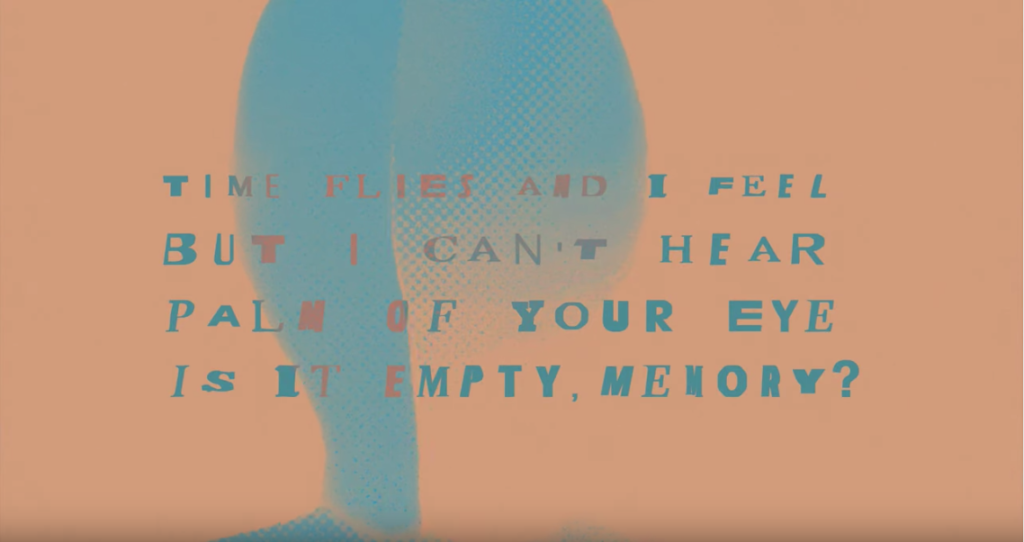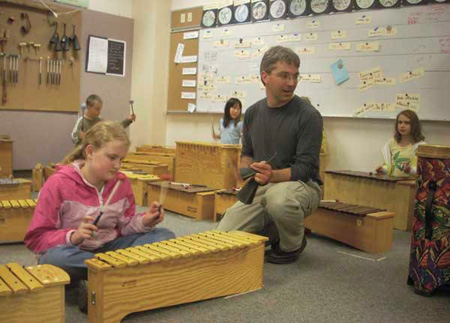It’s an interesting time to be an artist. As machine learning becomes part of the toolkit, in different ways for different people, new ideas are shaking loose, and I feel compelled to write about them as a way of wrapping my head around the whole thing.
The most recent headquake hit me by way of the ML-assisted album Chain Tripping by post-punk-pop band YACHT. Here’s a great Google I/O talk by bandleader Claire Evans that describes just how they made it. (Tl;dr: no, the machines are not coming for your jobs, songwriters! Using ML actually made the process slower: it took them three years to finish the album.) This case is interesting for what it tells us about not just the limitations of current AI techniques, but also the creative process, and what makes people enjoy music.
In music there’s this idea that enjoyment comes from a combination of the familiar and the unexpected. For example, a familiar arrangement of instruments, a familiar playing style, with a surprising melody or bass line. Maybe it works like visual indeterminacy: it keeps you interested by keeping you guessing.
As genres go, pop music is particularly information-sparse. What I take from YACHT’s example is that low level noise— nearly random arrangements of words and notes— can produce occasional bursts of semi-intelligible stuff. By manually curating the best of that stuff and arranging it, they pushed the surprise factor well above the threshold of enjoyability for a pop song. And then they provided the familiarity piece by playing their instruments and singing in their own recognizable style. The result: it’s pretty damn catchy.
So if you like the album, what is it exactly that you like? It sounds to me like what you’re enjoying is not so much the ML algorithm’s copious output of melodies and lyrics, but YACHT’s taste in selecting the gems from within it. So far, so good. But there’s another piece of this puzzle that makes me question whether this analysis is going deep enough.

Time flies and I feel / but I can’t hear / palm of your eye / is it empty, memory?
The first time I watched the video for SCATTERHEAD, one lyric fragment jumped out at me: “palm of your eye”. I’m not alone: NPR Music’s review calls it out specifically as a “lovely phrase … which pins the lilting chorus into place”. But it jumped out at me for a rather different reason: I’d heard those exact words before. I immediately recognized them from Joanna Newsom’s 2004 song Peach, Plum, Pear.
At the time, not knowing anything about YACHT’s process, I assumed they were making an overt, knowing reference to Newsom’s song. But then I learned how they generated their lyrics: they trained the ML model on the lyrics of their own back catalog plus the entire discography of all of the artists that influenced them. This opens up another plausible explanation: it could be that Newsom was among those influencers, the model lifted her lyric whole cloth, and YACHT simply failed to recognize it. If that’s the case, it would mean the ML model performed a sort of money-laundering operation on authorship. YACHT gets plausible deniability. Everyone wins.

This sounds like a scathing indictment of YACHT or of ML, but I honestly don’t mean it that way. It really isn’t that different from what happens in the creative process normally. Humans are notoriously bad at remembering where their own ideas come from. It’s all too common for two people to walk away from a shared conversation, each thinking he came up with a key idea. For example: witness the recent kerfuffle about the Ganbreeder images, created by one artist using software developed by another artist, unknowingly appropriated by a third artist who thought he had “discovered” it in latent space, and then exhibited and sold in a gallery. So, great, now we have yet one more way that ML can cloud questions of authorship in art.
But maybe authorship isn’t actually as important as we think it is. Growing up in our modern capitalist society, we’ve been trained to value the idea of intellectual property. It’s baked into how working artists earn their living, and it permeates all kinds of conversations around art and technology. We assume that coming up with an original idea means you own that idea (dot dot dot, profit!) But capitalism is a pretty recent invention, and for most of human history this is not how culture worked. Good ideas take hold in a culture by being shared, repeated, modded and remixed. Maybe there’s a way forward from here, to a world where culture can be culture, and artists can survive and even thrive, without the need to cordon off and commodify every little thing they do. It’s a nice dream, at any rate.
At some level this is just me, sticking a toe in the water, as I get ready to add ML to my own toolkit. (It’s taken me this long to get over my initial discomfort at the very thought of it…) When I do jump in, we’ll see how long I can keep my eyes open.

